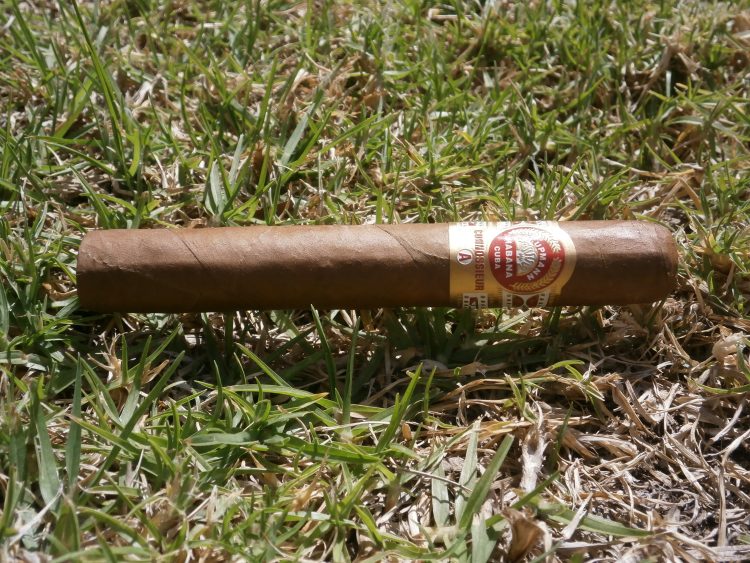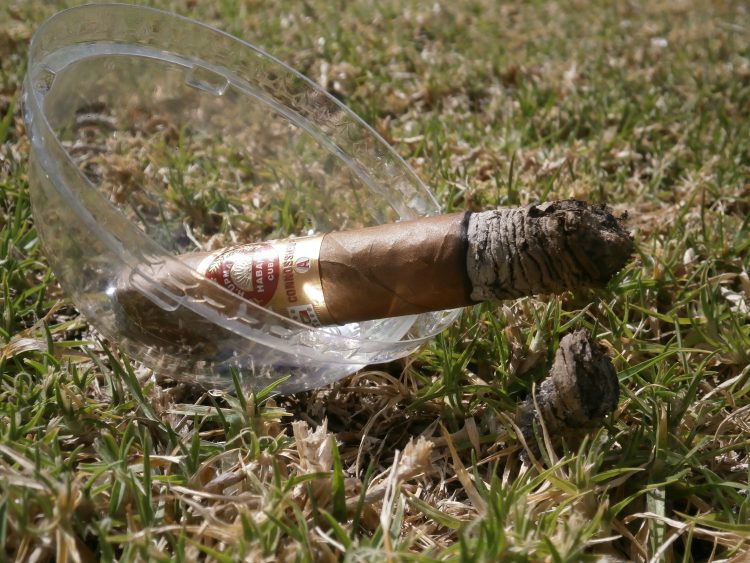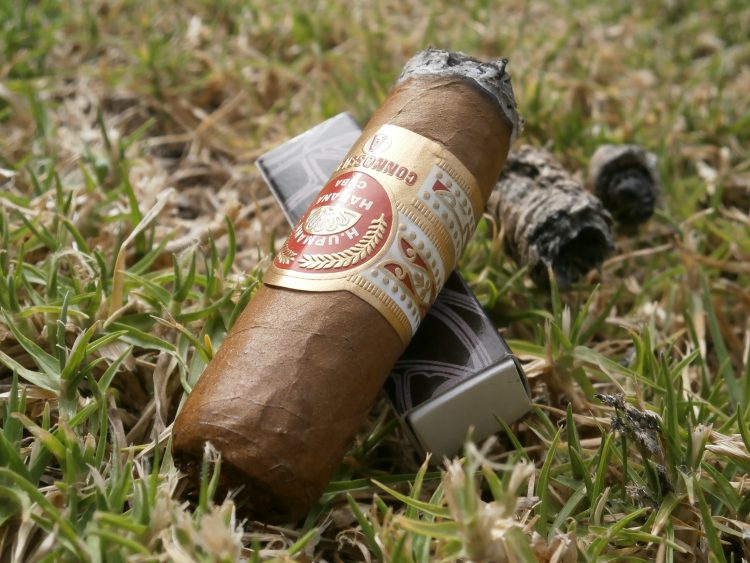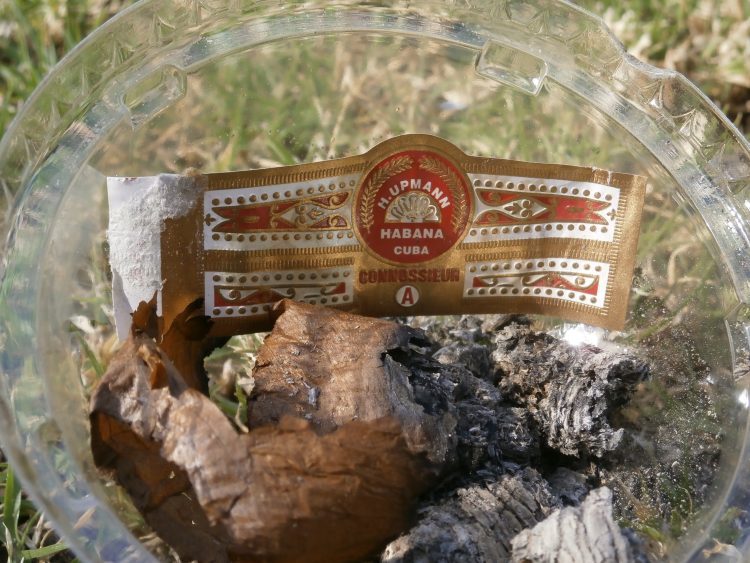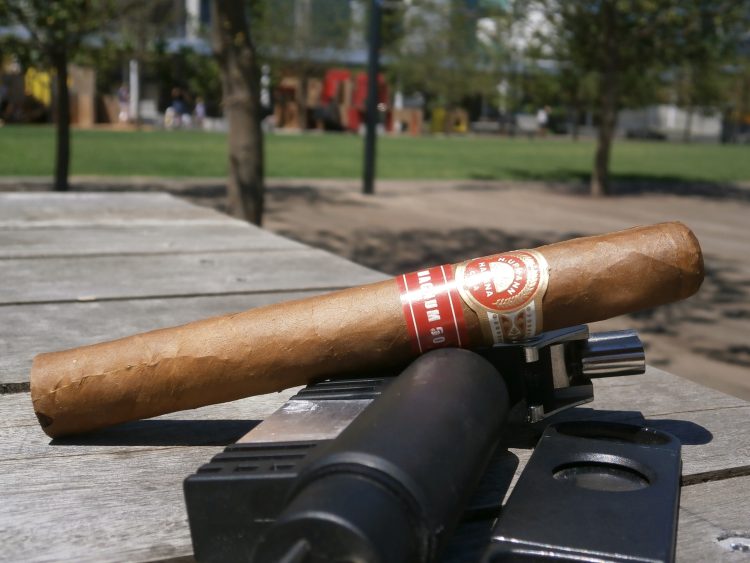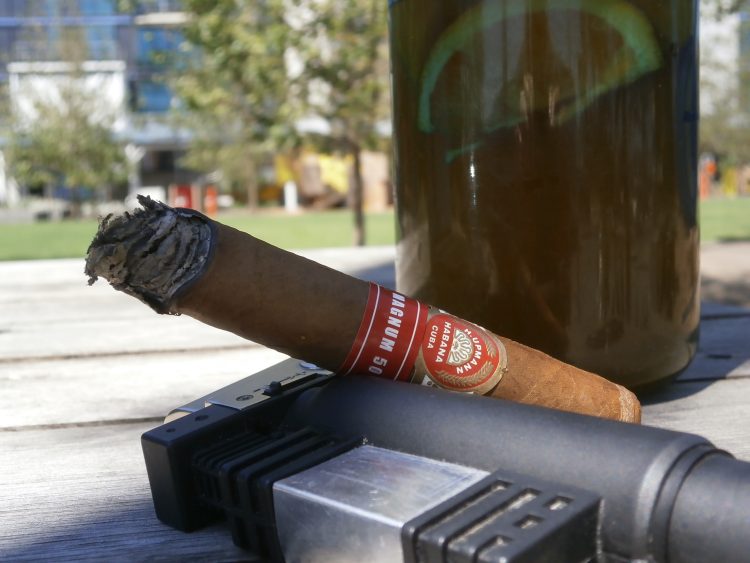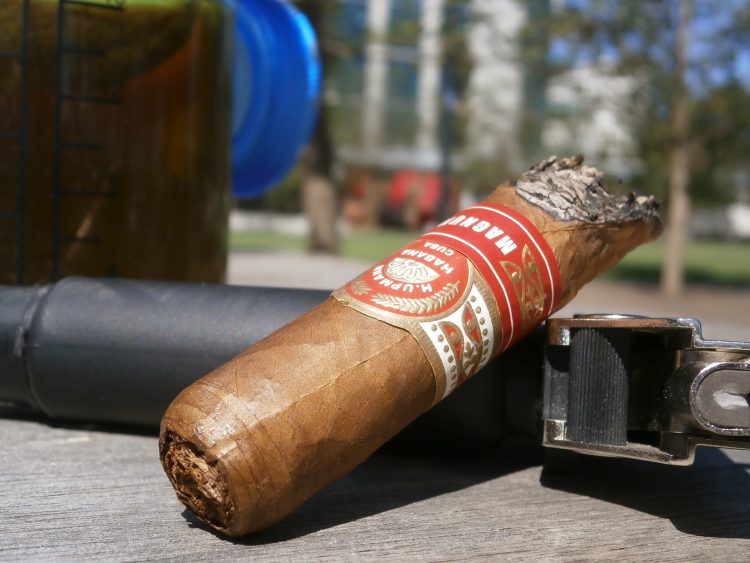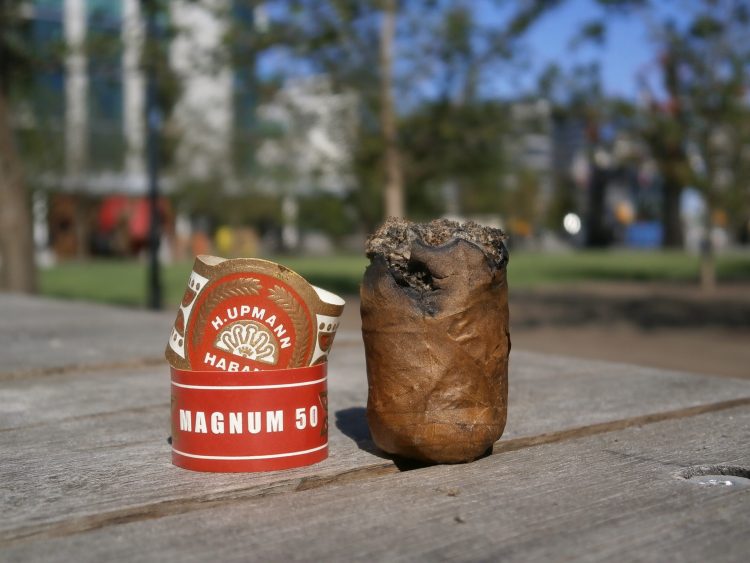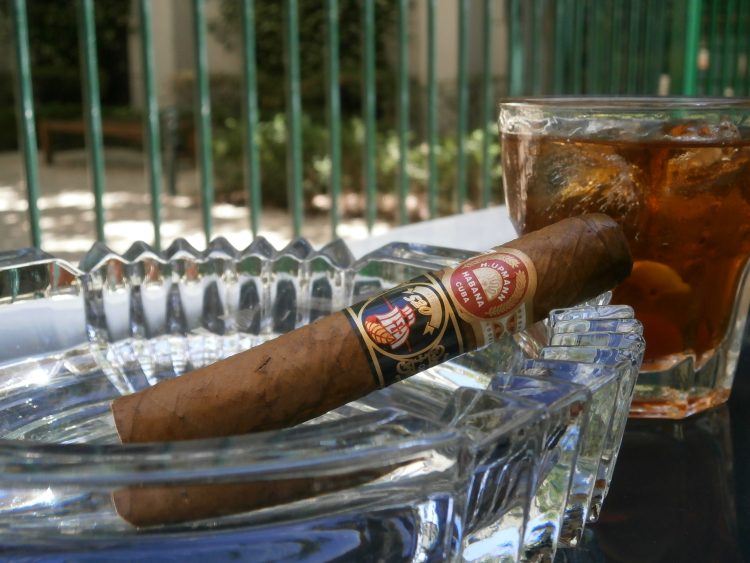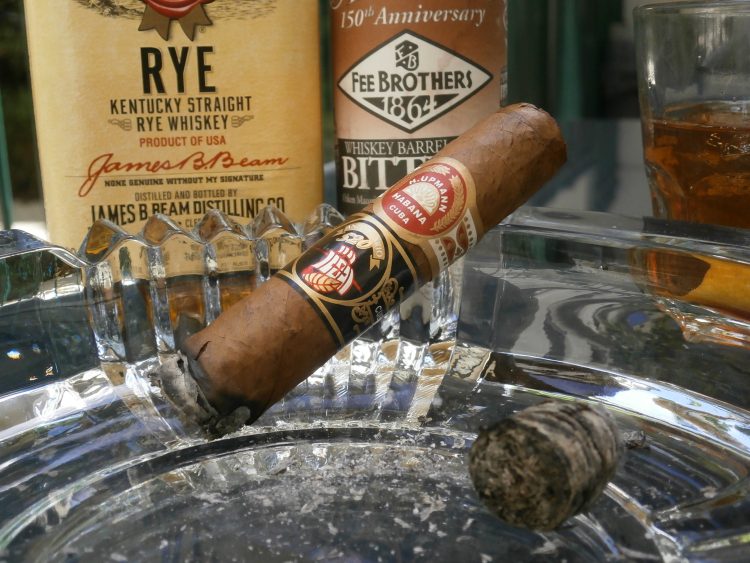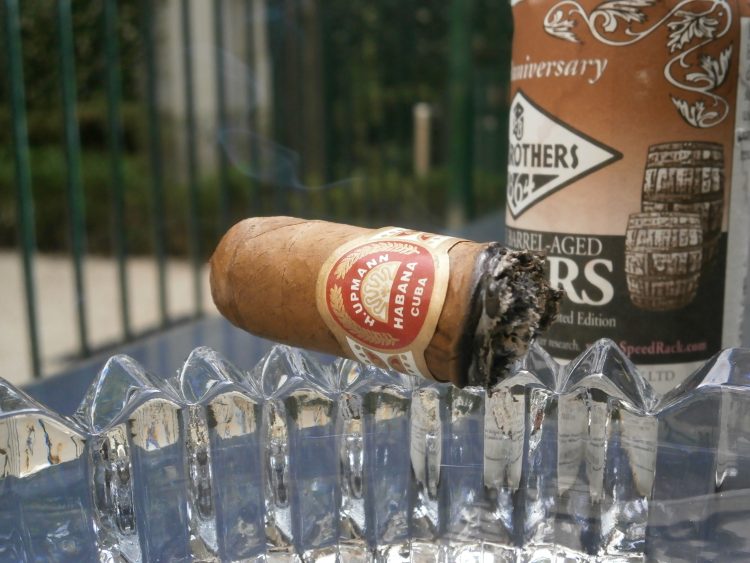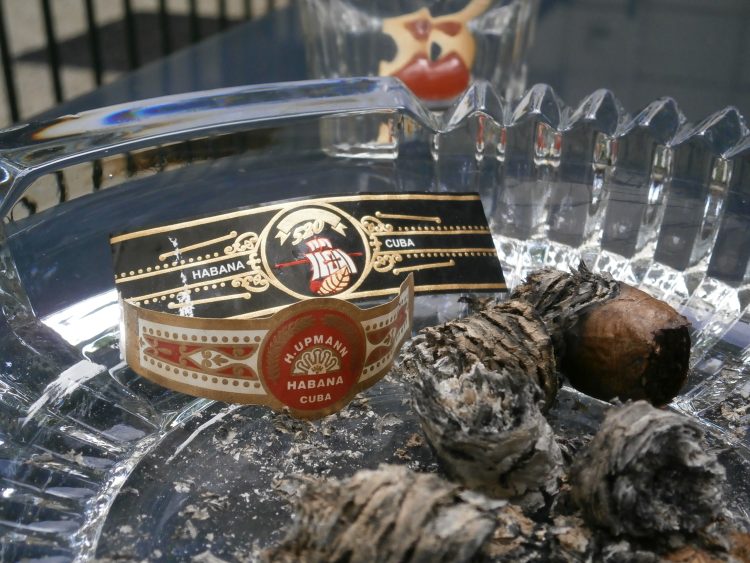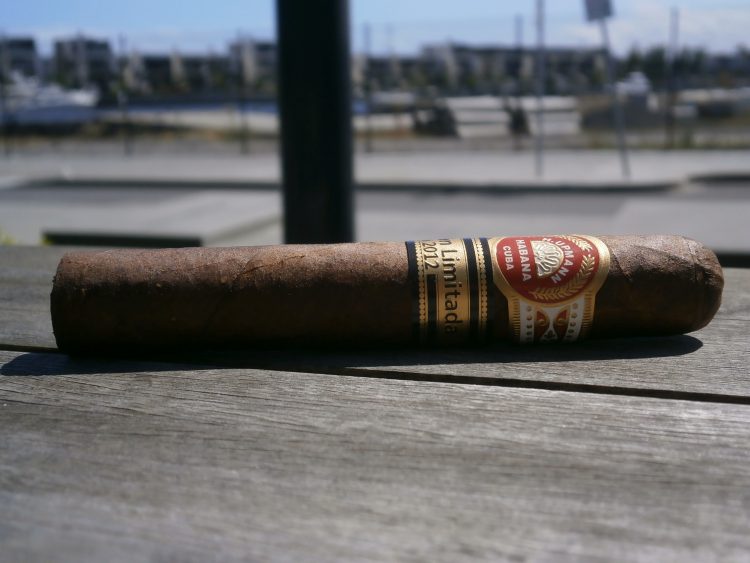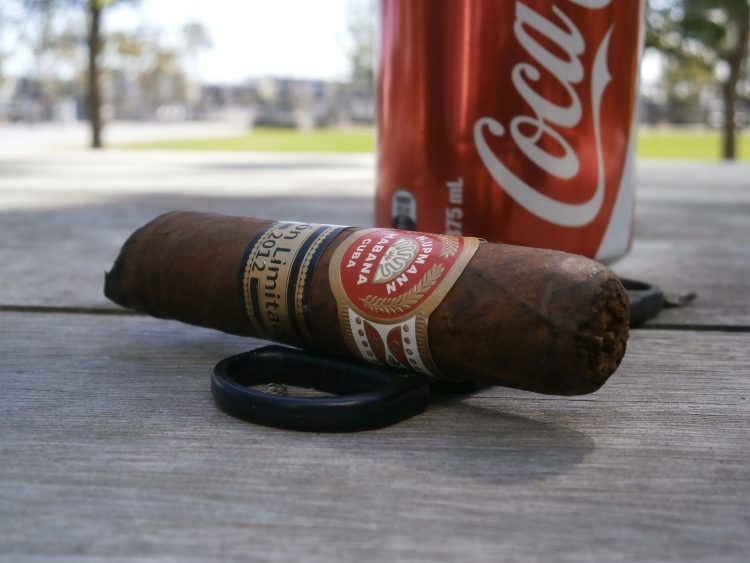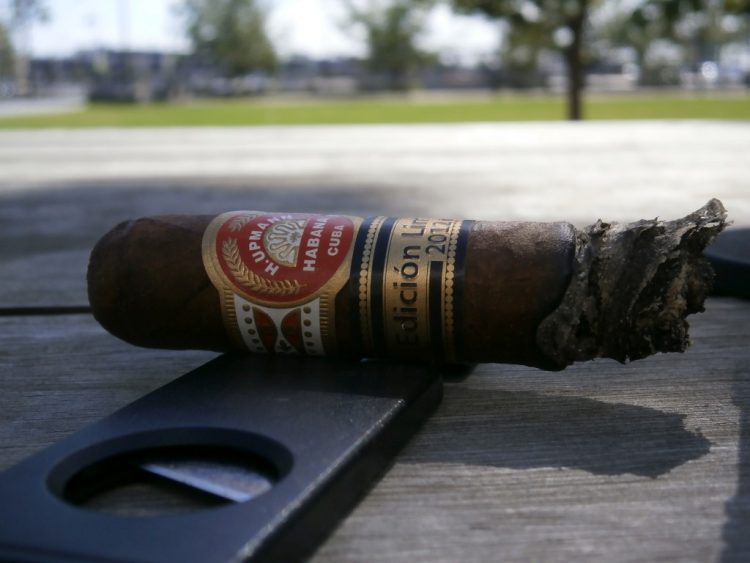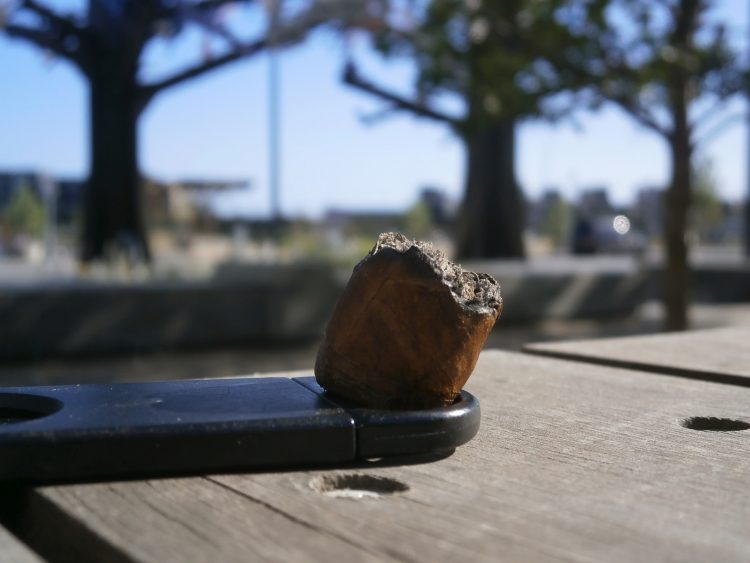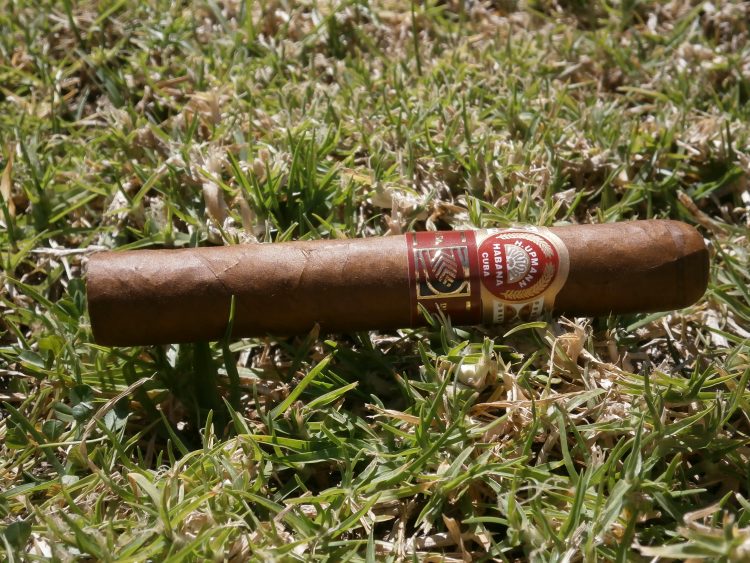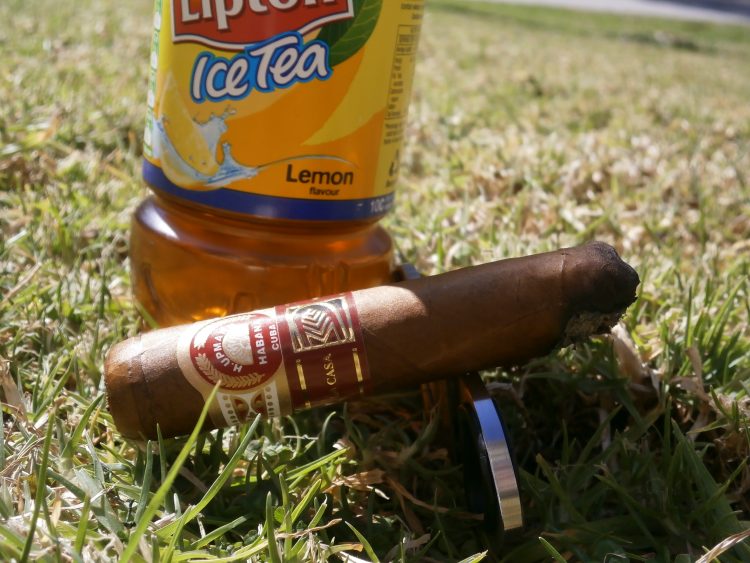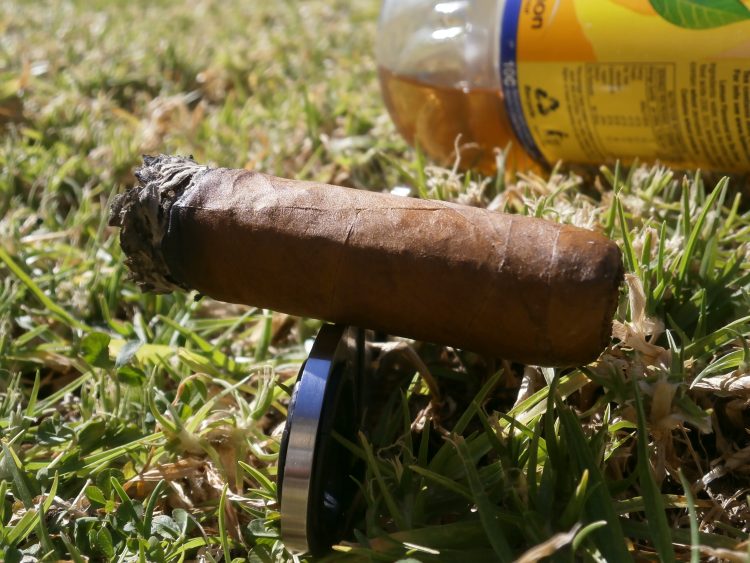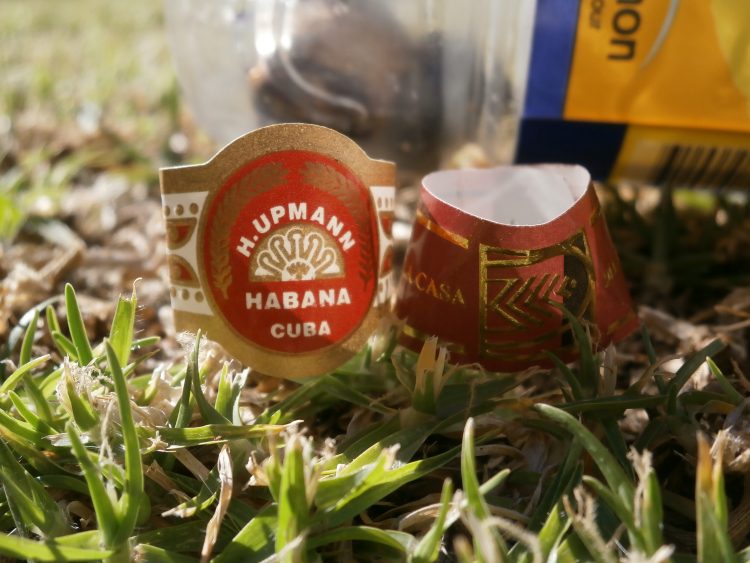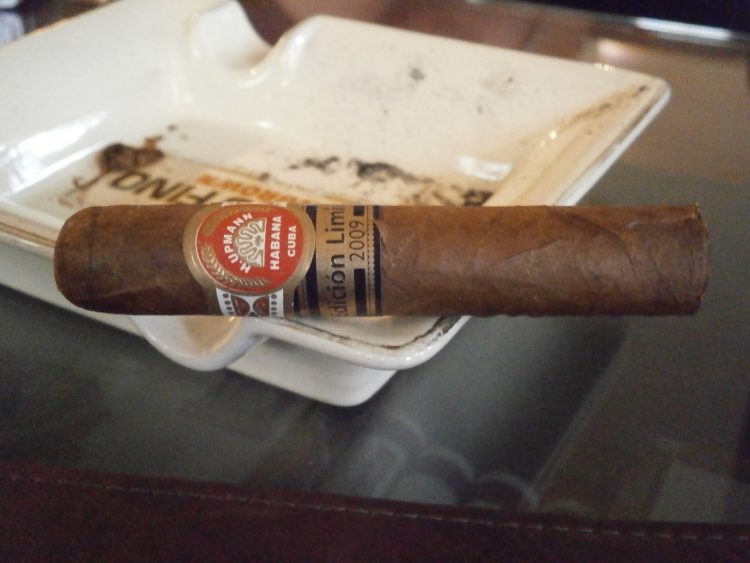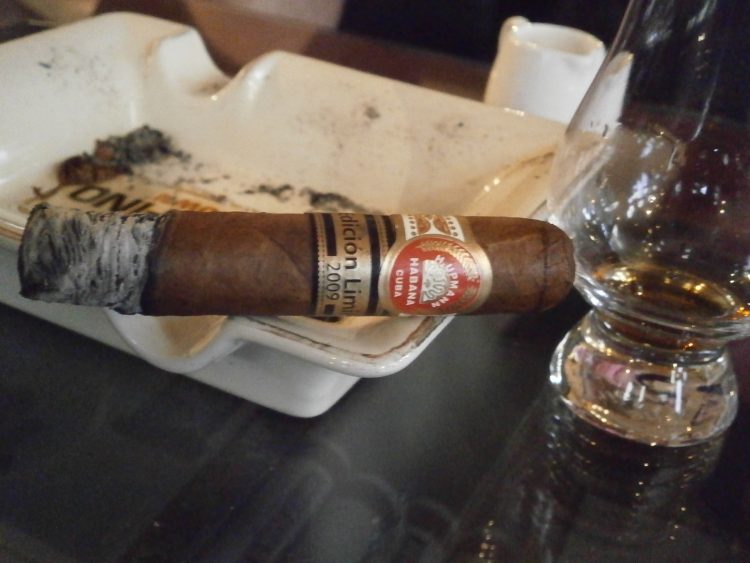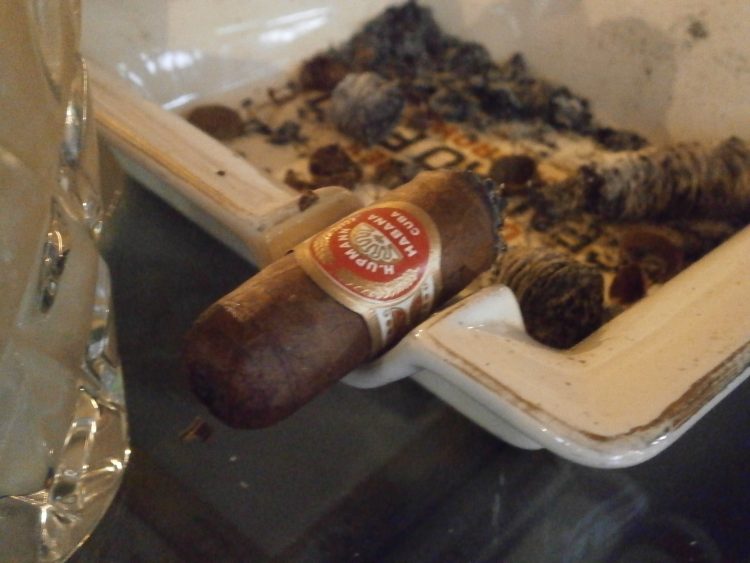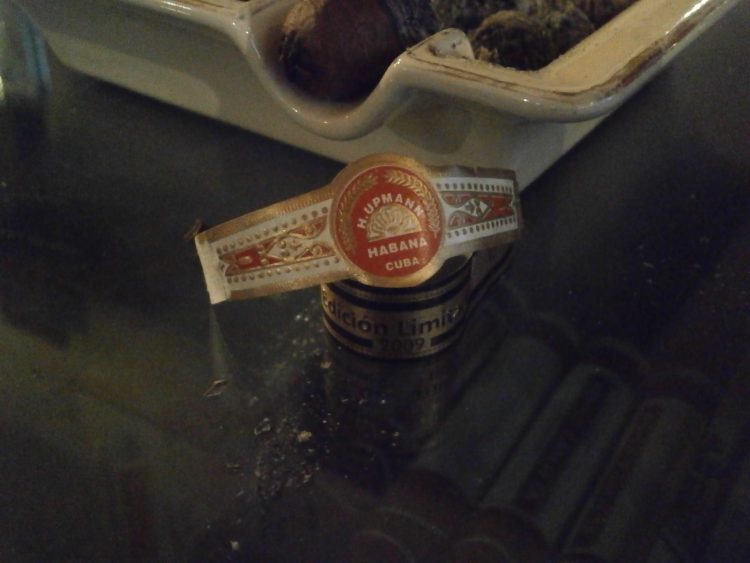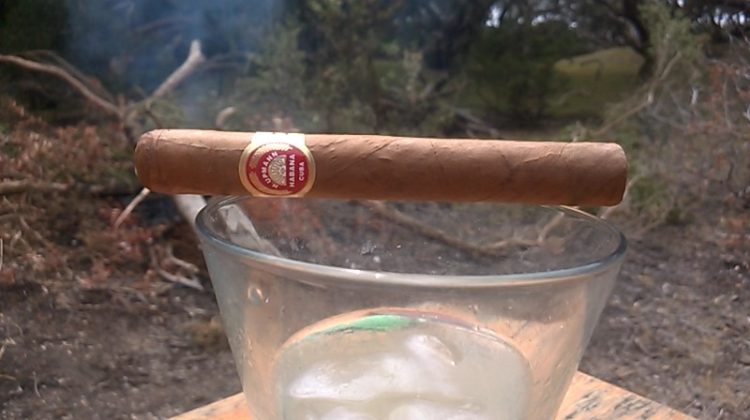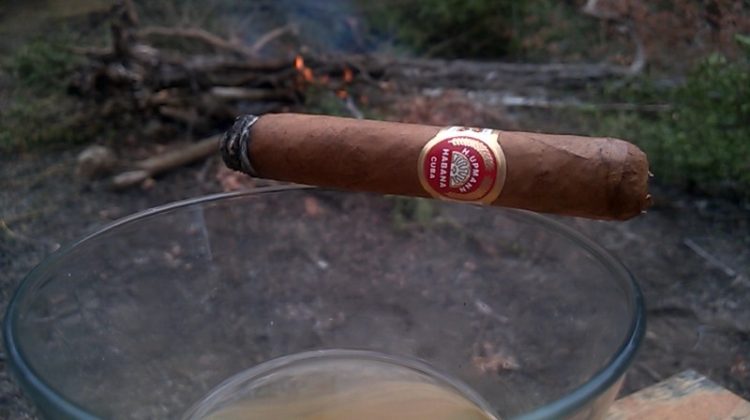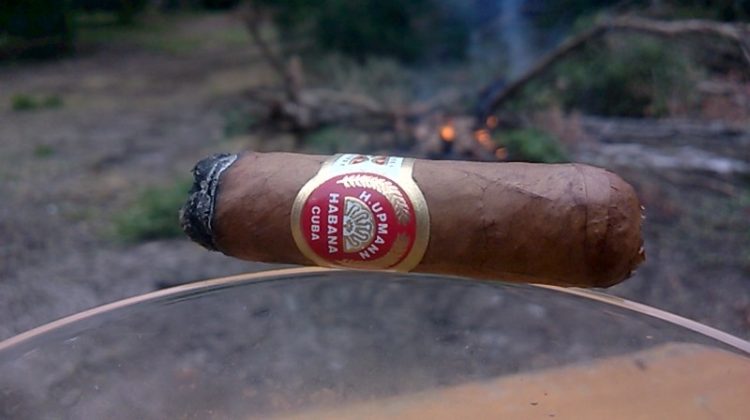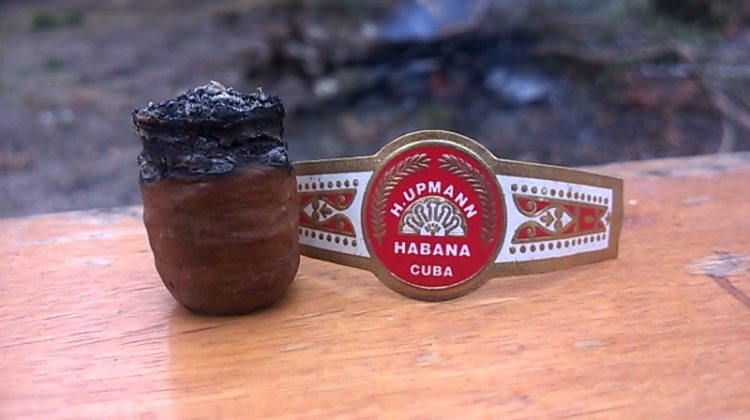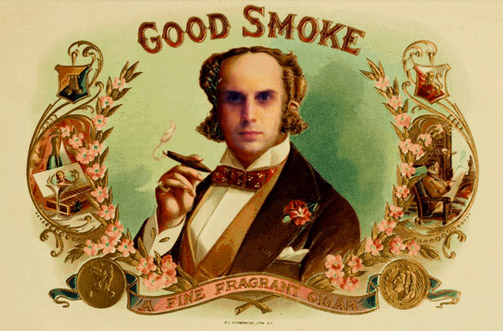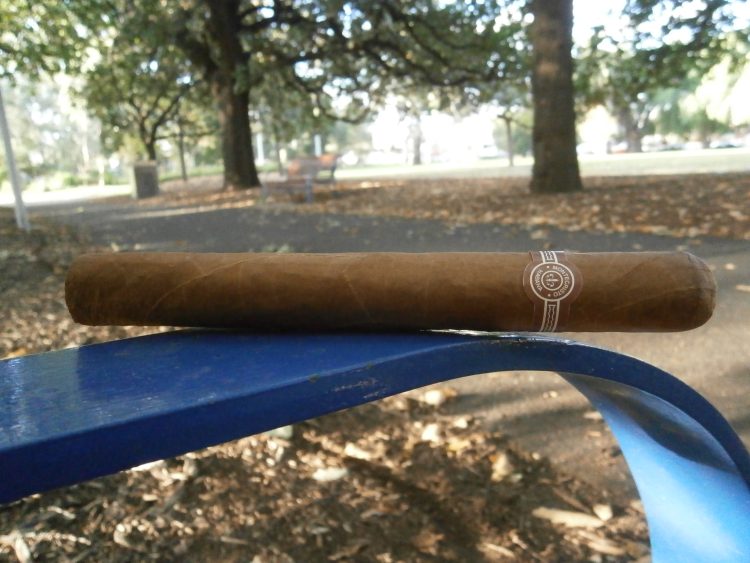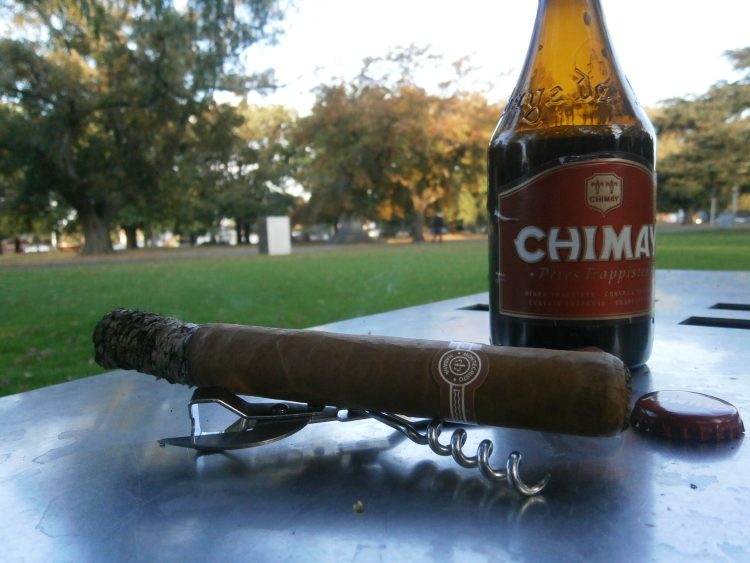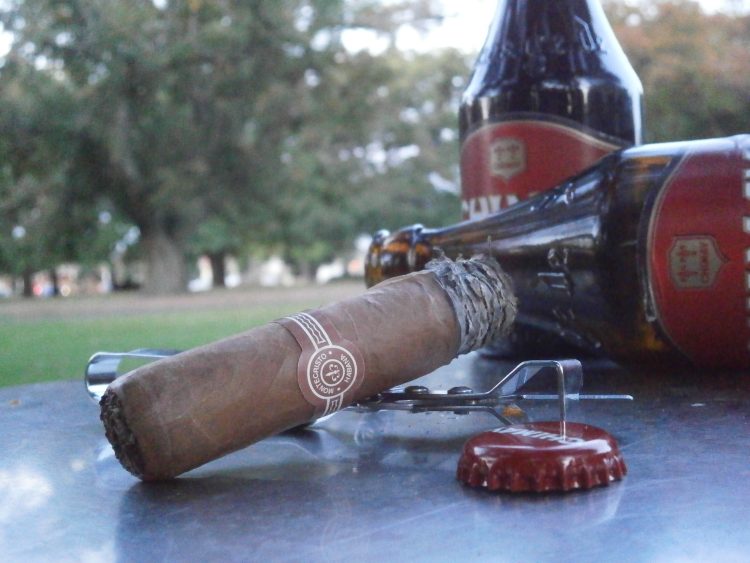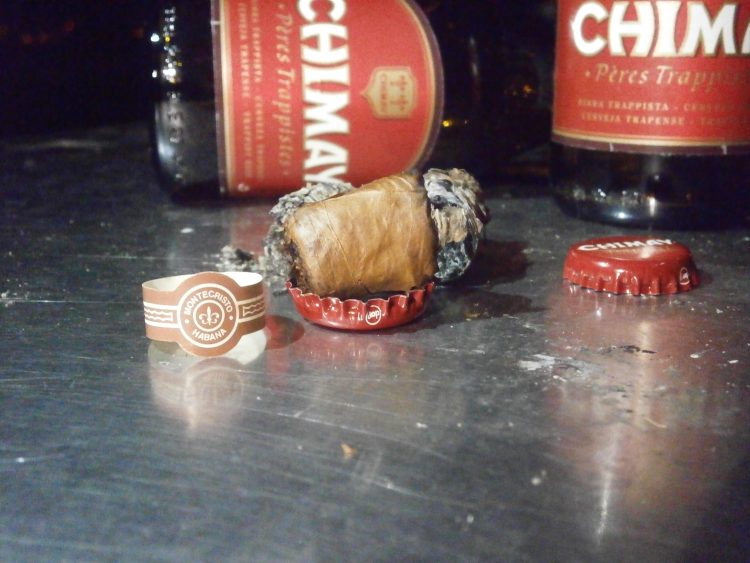The H. Upmann Connossieur A was the 2013 entry in the Habanos Specialist Exclusives program; it’s not entirely clear what criteria qualify a store as a Habanos Specialist, although I suppose the idea of the program is that it’s a slightly broader version of the similar La Casa del Habano exclusives. In reality, cigars from both programs seem to be available to any store that has the wherewithal to order them from their distributor. The misspelling of “connoisseur” is apparently deliberate, or at least it’s consistent across the band, box, ribbon, and all of Habanos S.A.’s press releases. Why they chose this spelling for this release, and the correct spelling for the Connoisseur No. 1 has never been adequately explained: a cynical mind might speculate that perhaps they wrote it down wrong when they commissioned the bands, and in a display of good Cuban frugality, decided to just roll with it rather than scrap the run.
I open the end with a fingernail and test the draw: classic Cuban, just firm enough that you feel it. Once lit it has a nice nutty, grassy beginning, with light, slightly floral tobacco. It thickens up quickly, and by an inch in the cigar has become quite strong – much stronger certainly than I was expecting from the first mild puffs, the taste now being rich tobacco and fresh-turned earth. It’s not totally typical of Upmann, but very pleasant nonetheless. A few millimetres further on and some cream enters the mix.
In Cuba, years ago, I lingered for a few days in a town called Trinidad, a well preserved colonial tourist trap a few hours from Havana. I was travelling with my friend Andre, and he had read in a guidebook that there were precisely two things to do at night in Trinidad: the La Casa del Musica, an outdoor live music venue in the centre of town, and some kind of nightclub in a cave in the hills just outside it. We had arrived in the late afternoon in the back of a beaten up Lada taxicab driven by two Cuban youths, who kept the tachometer needle firmly in the red at all times, save for the occasional moment when they would slam on the breaks to blow kisses at a comely female hitch-hiker. Tired from the journey, we decided that for night one we’d go with the quieter option, and so headed to La Casa.
The stage was at the bottom of a set of steps from which a crowd of forty or so tourists watched spirited renditions of Guantanamera and all the usual Cuban favourites. We joined them, and after a short while a heavily pregnant and decidedly rabid looking Dachshund stray weaved its way through the line of foreign ankles to us. I went to shoo it away, but Andre, ever the soft hearted dog lover, picked the thing up, put it in his lap, and began to feed it chips. I was just starting the process of chastising him, saying he was sure to catch rabies, or at least fleas, when I noticed that two female faces were leaning forward to look at us from a few seats down the aisle. At a break in the music they sidled over, a gorgeous blonde in her twenties who said she was Argentinian (although from her Aryan appearance I’d say her family had probably emigrated there around 1945), and a Cuban girl in her mid-teens, short and square, but with a cute enough face, made only more attractive by her fine, black moustache. After complimenting us on our dog, the girls suggested that we all head for the nightclub, and energised by the fragrance of foreign feminine pheromones, we instantly agreed.
The way to the club was a short hike up a rocky path through a graveyard and past a tumble down church, and as is natural with groups of people, we fell into two couples, Andre and the Cuban girl up front, and myself and the Argentine behind, each making idle chatter, getting to know one another. The disco was indeed in a cave, entered via a steep set of stairs and a long tunnel with walls worn smooth and waxy by the curious caress of a million tourists. The dance-floor itself was the only obvious construction, a flattened artificial floor laid beneath a soaring ceiling covered in stalactites. We found ourselves a table near the edge, ordered a round of mojitos, and lifted them in toast to our success: to unique atmosphere, the company of charming strangers, and to the Cuban night in general.
At the mid-point the cigar is very mild and crisply herbal, with an unusually white ash for a cigar of this age. With about two inches to go it takes on a sweet herbal characteristic reminiscent of cloves and dessert spices.
We weren’t seated long before Andre’s partner dragged him to the dance floor, and quickly began to gyrate lasciviously against his more or less motionless form. Still in my early twenties and a native son of Australia (one of the world’s least rhythmic countries), I was not much of one for dancing. My typical move was a sort of arrhythmic shuffle: I would shift my weight from foot to foot and shake my shoulders back and forth occasionally, my arms hanging like salamis in a butcher’s window. Still, the thing that was happening against Andre’s crotch looked like a lot of fun to me, so I offered the Argentine my hand, and led her to the floor.
She may have been from Bavarian stock, but this girl was no Schuhplattler dancer: no, her moves came straight out of a Buenos Aires tango club. Grinning, she took my hand and pressed her lithe form against me, and I watched her smile fade as I nervously giggled and shuffled and attempted some ridiculous impersonation of a waltz. Soon she released me and took a step back, and as soon as she did an oiled Cuban lothario in tight pants and a shirt unbuttoned to his navel stepped in, taking her authoritatively within his personal space as he dipped and spun and thrust himself against her. Emasculated, I shuffled a few minutes more, before heading back to the table and sulking, looking on in increasing despair as first the Argentinian, and then Andre, began to make out with their native counterpart. Dejected, I finished my drink and headed back to the hotel alone.
I didn’t see a lot of Andre over the next few days: he came home at six in the morning that night, and disappeared immediately upon rising in the mid-afternoon sometime, and kept similar hours the next day. I wandered the streets alone, and read a good deal of War and Peace in a local park. Trinidad is a tiny place, and more than once I saw the Argentinian reading a book or writing in her diary in a café, but we didn’t acknowledge one another.
On our fourth and final day in Trinidad, Andre joined me for breakfast and informed me that we had an invitation to his girl’s house for lunch, and told me where to find it (we had bus tickets departing in the early evening). I prodded him for details of his activities over the last few days, but he wasn’t forthcoming, and disappeared immediately after breakfast. I took my final walk around the town, and at the appointed hour found the address I was given, a ramshackle but charming colonial house on the outskirts of town. I knocked, and was greeted at the door by bare chested Cuban man with a large, hairy belly. He regarded me for a minute before bellowing “Alejandro!” as if I were an old friend, slapping me on the back, and escorting me into the house, where I found Andre taking tea with the Cuban girl and her mother in the airy dining room.
We were served a fine meal of pork and rice, although the conversation was entirely in Spanish (Andre’s Spanish, which had previously consisted only of four years’ worth of Italian classes, seemed to have improved markedly over the last few days), and I was never able to really divine what relationship these people thought we had with their teenage daughter. After the meal the father (whose name was Mario, it turned out) took us into the backyard and showed us his pig, a massive sow lying on her side in a muddy pen. She showed no interest in us, so he threw rocks at her until she squealed, hauled herself upright and trotted over to receive an apple.
When it was time to go the daughter walked us out alone, and after one last passionate embrace, slipped Andre an envelope. He opened it on the bus: it contained an airbrushed glamour photo of her dressed as a Southern belle; hooped skirts, bonnet, parasol, moustache and all.
When the burn reaches the wide band I remove it, and unfortunately damage the wrapper in the process. From that point on the cigar begins to unravel, and I cannot cool the burn. It becomes bitter, and tar filled, and any nuance is lost. An unfortunate end to a fine cigar, but nevertheless this was a fine, mid-level smoke that is decidedly better than an H. Upmann Petit Coronas.
H. Upmann Connossieur A Habanos Specialist Exclusive 2013 on the Cuban Cigar Website.
